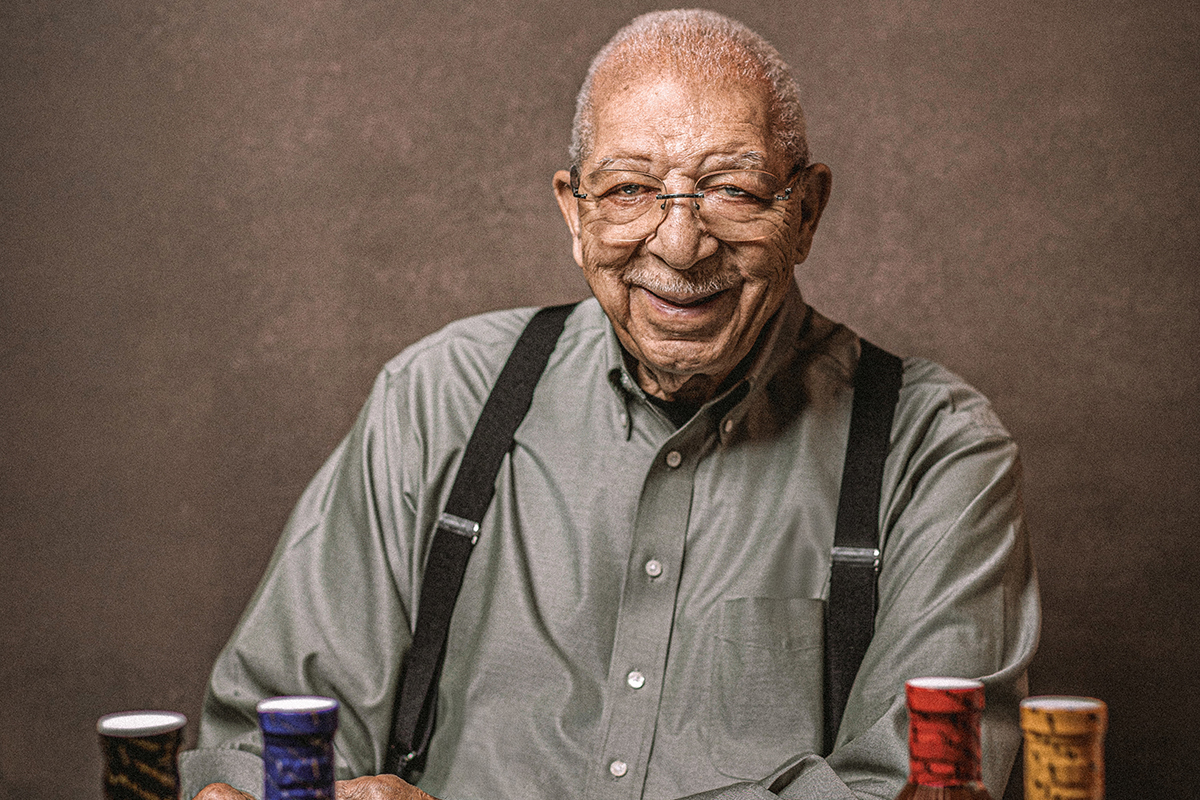Just south of the blinkering neon of Myrtle Beach, there’s an old clamming town called Murrells Inlet. It’s a place where locals pull their living from the salt marshes and where you’ll find a street lined with biker bars named Suck Bang Blow and The Big Beaver. In a little clearing in the woods outside this town, a son from one of south Kansas City’s best-known families was murdered.
At age twenty-six, Frank McGonigle emptied his bank account and left the family home in Brookside after an argument with his brother over the type of soap used to mop the floors of the family’s butcher shop. A few days later, Frank was passing through the Inlet, where he was robbed and shot twice. His body was stripped of identifying documents, and the killers ditched his car up in Wilmington, with Frank’s golf clubs and tennis racket still in the trunk.
For nine years, as the McGonigle family fretted Frank’s fate, Murrells Inlet police made an effort to identify the body they knew only as “The Boy In The Woods.”
Three men are suspected of being involved. Cousins Chris Nance and Tommy McDowell were the sons of the local crime boss and a sheriff’s deputy, respectively. Around the time of the murder, they’d been palling around with a local outcast named Jeff McKenzie. All three are now dead, having all met early and painful ends.
This story is the subject of Ripple, a new book by local author Jim Cosgrove excerpted in our March issue.
Cosgrove grew up in Brookside, where his family was tight with the McGonigles. He started on the story as a reporter in New Mexico, and he finished the first draft of the book for his master’s thesis.
During the pandemic, Cosgrove—you may know his alter ego, a children’s musician named Mr. Stinky Feet—finished the book, which is now being published by Steerforth, a respected small press based in New Hampshire. Along with this excerpt, we spoke to Cosgrove about the project.
What was the transition to true crime like?
I always tried to keep in mind that this is a story about a guy who was murdered. It’s a gritty, sad story. And there is a family that’s grieving. I wanted to keep that in perspective. I’ve struggled a bit with these types of stories as entertainment, too.
Because of my personal investment—my family’s connection to the McGonigle family—I have a different perspective on the story, and I think it makes it different from a lot of true crime. For a long time, I never considered it a true crime story—until we got close to publication and that’s where it fell. It’s more of a memoir, really, and a story about family and grief and struggle and guilt and coming to terms with those things.
The book has two separate groups of characters: One is an upstanding Brookside family, and the other is this group of people in South Carolina who are the dregs of society—liars, drug dealers, murderers, racists. What was it like to enter this world?
Well, not all members of these families were liars or drug dealers or murderers or racists. I met some very lovely people who went out of their way to help me. But going into this as a young, Midwestern, Catholic-school-boy journalist, yes, there was a bit of culture shock. And through the process, and really through the years of getting into the heads of the suspects in this murder, I really came out of it with this heavy sense of compassion. Which surprised me a bit. I ended in a place of compassion. How did, in particular, these three guys who were suspected of being involved get to this point and why? What were their lives like? Had I been born there, would I have been in the same kind of mindset?
One of your sources calls it the “Murrells Inlet Mafia.” It seemed to me there was a touch of irony, but that’s really what it was, right?
It was indeed. Paul Nance was a small-town crime boss. I believe it was Chris, his son, who said that to me: “My dad was the local mafia boss.”
Do you think Frank McGonigle, who was murdered not long after he arrived in this town, understood the people he was engaging with?
Frank was trusting. He wasn’t naive; he was just a loving, trusting soul. He was worldly enough. He’d hitchhiked by himself all over the West. He’d had a lot of experience with the world. But it just didn’t compute with him that people were like this. He tended to give people the benefit of the doubt. He moved through the world like that, so he assumed others would treat him the same way.
I think part of the fascination with these types of stories is that if you went to Murrells Inlet today—well, now it’s loaded with high-end condos and great seafood restaurants—but even if you went there then, you wouldn’t suspect it either.
I looked up news coverage of the death of Chris Nance, and he himself was brutally murdered. Those stories never mentioned that his father was a local crime boss. How is the town going to react to its business being put out there for the first time?
It’s going to be interesting to see how it plays out and if I will be welcome there again. As I think I got across in the book, everybody there knew Paul Nance, and everybody kind of knew what he was doing. But the fact that they were never able to pin any of it on him tells you he was in the pocket of local law enforcement, which is how these things go.
Whenever secrets are revealed or dirty laundry is aired, there is going to be backlash and there is going to be some defensiveness and gnashing of teeth, but also I think there is going to be some introspection because I’ve already interviewed people who were like, “Yeah, you know, this makes us look at what’s gone down.”
A lot has changed since then. It’s no longer like that. Paul is long gone, his empire is long gone, but the stories about him will live on as legends.
Obviously, the book makes all of these people into legends, in a way.
It’s been such a big part of my life for so long that it’s almost surreal now that it’s being published. Man, it’s been a long time. But I’ve changed a lot since I first got on the story. I went into it like I did a lot of things as a young man: bright-eyed and with good intentions and, as a journalist, trying not to get sucked into the story—just observe and report. But I got sucked in.






